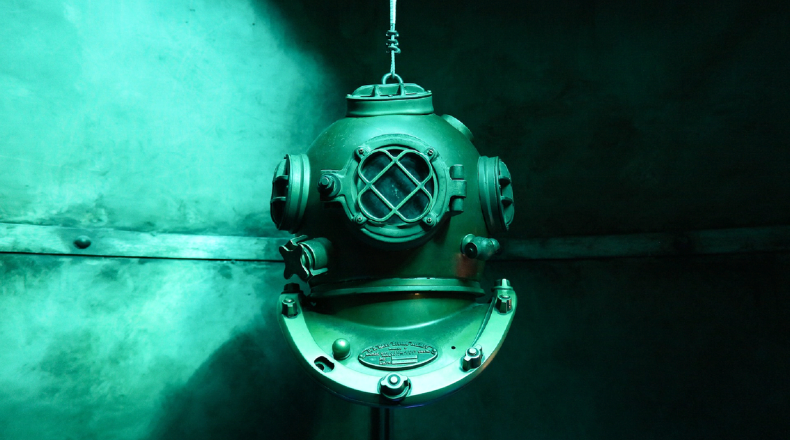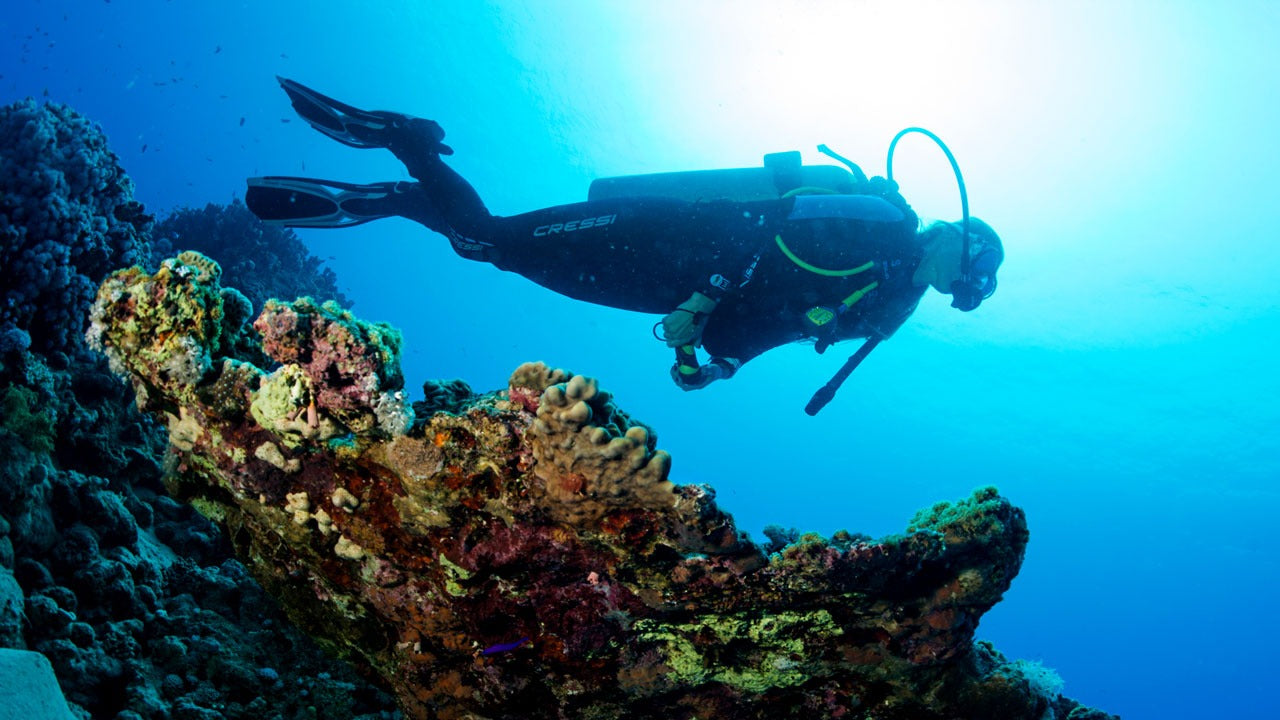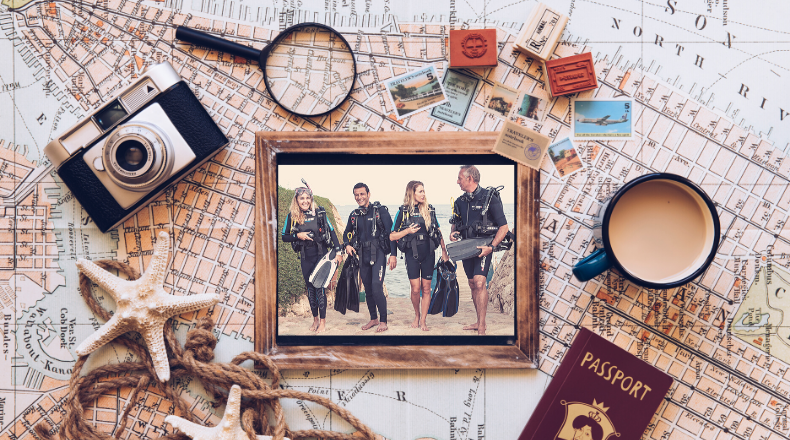5 Ocean Documentaries You Should Totally Watch

If you already miss your dive vacation or feel particularly ocean sick tonight, you have landed at the right place, as we have assembled a list of the most beautiful and moving ocean documentaries that are guaranteed to make you feel like you’re out at the sea. Furthermore, watching these documentaries will help you learn about the ocean and hopefully inspire you to take action to protect it.
So without further ado, let us introduce our picks for 5 best ocean documentaries.
#1. The Blue Planet
The Blue Planet is one of the most popular nature documentaries of all time, and for a good reason. Produced by the BBC and narrated by Sir David Attenborough, this series of eight beautifully crafted episodes takes the viewer on an entrancing journey into the murky depths of our oceans.
Each 50-minute episode examines a different aspect of marine life - from familiar creatures on and near the surface of the ocean to some more unrecognizable deep sea dwellers. The great narration gives both an in-depth and clear explanation of everything that happens on the screen. The film as a whole manages to accurately capture the day to day struggle for life, highlight the importance of marine conservation and make an artistic statement.
It is the Blue Planet that made so many of us fall in love with the ocean and even inspired some to pursue careers in the field of marine science. Finally, despite the fact that this documentary was shut back in 2001, it still impresses viewers with its stunning, ocean footage.
Bonus: If you are a fan of the original Blue Planet series, you’ll be happy to learn that the BBC Earth has released a sequel - Blue Planet II, and it is absolutely brilliant. The new series was filmed across 39 countries and took 4 years to complete. It will consist of seven parts, four of which - One Ocean, The Deep, Coral Reefs and Big Blue have already aired. The first episode of Blue Planet II was watched by an average of 10.3 million live viewers.
#2. A Plastic Ocean
Plastics pose a huge threat to our oceans. They kill or harm more than 300,000 marine animals every year. Sadly, we all contribute to the issue by using plastic water bottles, cups, straws and single-use plastic bags. Recognizing the severity of the problem, two explorers, journalist Craig Leeson and freediver Tanya Streeter, have joined forces with an international team of scientists and went on a four-year journey around the globe to uncover alarming truths about plastic pollution.
The resulting adventure documentary, A Plastic Ocean, highlights exactly how and why plastic is killing our beloved happy place. The film documents the newest science, showing how plastics in the ocean affect not only the marine creatures but also human health. Further, the documentary reveals working solutions that can be put into immediate effect.
A Plastic Ocean is a must watch documentary that can help us realize that we all are a part of the problem, and each of us can also be a part of the solution.
#3. Mission Blue
Mission Blue is an extraordinary story of how one individual can build a movement of hope. The documentary follows oceanographer Sylvia Earle's campaign to save the world's oceans from threats such as overfishing and toxic waste. Inspirational and moving, it takes viewers on a journey from Dr. Earl’s early years growing up in Florida, through her academic career, to her brief stint as the head of the National Oceanic and Atmospheric Administration (NOAA) and all through her 6 decades of dedicated work on waters around the globe. We are told about Dr. Earle's lifelong wish - to build a global network of marine sanctuaries, such as underwater national parks, aimed to protect the natural systems that keep humans alive.
Additionally, the documentary presents visually stunning footage of the world beneath the waves and the creatures that live there. The film’s underwater sequences, captured by expert cinematographer Bryce Groark, speak as eloquently as Dr. Earle about the beauty and fragility of our ocean.
All in all, Mission Blue serves as both homage to a champion of the seas as well as a powerful case for saving the ocean.
#4. Sharkwater
We all have seen movies and heard stories, describing sharks as bloodthirsty, man-eating monsters. In reality, these magnificent creatures are greatly misunderstood and mistreated. To debunk historical stereotypes surrounding sharks, biologist Rob Stewart goes on a quest to some of the most shark-rich waters of the world - the Galapagos Islands in Ecuador and Cocos Island in Costa Rica.
The Sharkwater shows Stewart’s journey trying to prove sharks’ natural nonviolence. During this odyssey, Stewart reveals the reality of sharks as pillars in the evolution of the seas. Yet he also discovers that they have gone from predator to prey. The documentary explores the densest shark hunting populations in the world, exposing the exploitation and corruption of the shark-hunting industry.
Overall, the film is considered to be one of conservation's success stories. It helped to debunk common misconceptions about sharks, inspired the creation of shark conservation groups and even led to changes in government policy.
#5. Chasing Coral
Chasing Coral is an incredibly passionate and emotional documentary that aims to raise awareness about a true catastrophe silently raging underwater - coral bleaching. This phenomenon is a sign of mass coral death and it has been accelerating around the world. In the meantime, the public has no idea of the scale or implications of this issue. So, the director Jeff Orlowski together with a team of top-notch camera designers, and renowned marine biologists have decided to embark on a quest to document and show the audience how quick and devastating the effects of global warming are on the coral reefs around the world.
The film crew had to invent the first time-lapse camera to record bleaching events as they happen. The documentary takes us to such places as The Great Barrier Reef in Australia, the Florida Keys, American Samoa, Hawaii, Bermuda and the Bahamas. The creators of Chasing Coral wanted to highlight that the issue exists all around the globe, not just in one particular locale. Furthermore, the film explains the role of corals for our planet as a whole and why you should care about their survival, even if you live far away from the ocean.
Although a lot of the hard facts learned while watching this documentary may be somewhat discouraging and depressing, it does have a positive message in the end. Each of us needs to realize that no action is too small when it comes to protecting the environment and we all should be a part of that positive change.




